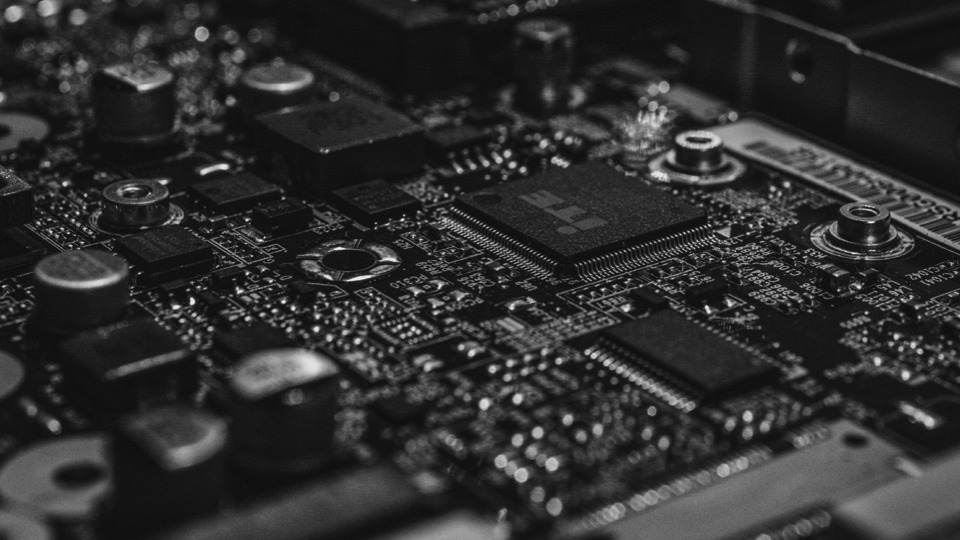

Posted by
Chris is an expert in the Semiconductor field across Europe. Chris is based in our Brighton office and can be contacted to discuss Design Verification job vacancies on +44 (0) 3303 352 350, ccanneaux@eu-recruit.com or you can connect with him on Linkedin HERE
"I came in touch with Chris during the period in which I was looking for a job. He responded very quickly when I asked for any openings through European Recruitment. Chris's highlights would be his responsiveness, being well aware of each company's recruitment laws and very good communication throughout the recruitment process." January, 2017. LabVIEW Developer, VI Technologies.
Chris is an expert in software and hardware engineering, IC design, and physical design layout & verification roles, concentrating on the Semiconductor market in various sectors.
This very much depends on the location of the role and the experience of the engineers, but for someone of mid-level experience in Munich, for example, an engineer can expect around €70,000 base salary + benefits and on a contract around €55 per hour depending on the project/client and budget. Munich is a pretty expensive city to live, so often salaries are slightly higher here than elsewhere, so this does vary depending on the country and even the city the Design Verification job role is based in.
A BSc or MSc in Electronic Engineering or similar fields are the usual routes into this industry that we see in Digital Verification Engineering. We are starting to see that more Digital Verification Engineers have MSc degrees to help increase chances of securing a job in the industry. Although this is not necessarily needed it will certainly help with making your profile stand out from other candidates.
Experience in various design languages such as System Verilog, and Verilog and/or VHDL is needed. Along with this, you will need some experience in Verification methodologies such as UVM, OVM or specman. Other than the technical skills, clients will often state in the job description that they are looking for soft skills such as communication skills. It is key, as a Digital Verification Engineer, that you are able to communicate and work well within a team environment, but also be able to liaise with other teams to report the findings that your work has produced. Most clients in Europe are looking for the ability to communicate in English, as teams are often built up of engineers from all over the world, so English as the common language is used.
Experience in microelectronics is going to be key with experience in fundamentals of Integrated Circuitry (IC’s). It is rare to see people move from completely different sectors into Digital Verification job roles, however, it is not uncommon to see someone working more on the Digital Design side to move towards Verification. Similarly, we do sometimes see Software Engineers who have experience working close to the HW move across and use their coding skills to pick up the key languages needed for Digital Verification Engineers. Most Verification Engineers like to understand and learn Digital design as well, as this gives them a much better understanding of the limitations that the designers face.
A Verification Engineer is supposed to rigorously test the design for all possible bugs and to think of all possible testing scenarios as well as come up with directed and constrained random test cases. The job is very demanding, as if there are issues with the chip after tape out, it is often the verification engineer that is considered responsible. With advancements in technology and therefore more complicated designs the demand for verification has increased. We now see the split between designer and verification engineers around the 50/50 mark, whereas in the past teams would be more design-heavy.
To discuss how our team can help you to find talented Digital Verification Engineers, please get in touch by emailing us on info@eu-recruit.com.
Alternatively, if you are a talented potential candidate looking for a Design Verification job role, please also get in touch.
Brighton Head Office
39 Upper Gardner Street
Brighton, BN1 4AN
United Kingdom
Company reg. 05924374
European Tech Recruitment SL
c/Jordi de Sant Jordi 12
bajo izq. 2
46022 Valencia
Spain
Company reg. B72490204
Huddersfield Office
Studio 6,
Friendly Street
Huddersfield
HD1 1RL
United Kingdom
European Recruitment BV
Laarderhoogtweg 25
Amsterdam, The Netherlands
1101 EB
Company reg. 76228673
Munich Office
Franz-Joseph-Str. 11
Munich, Germany
808081